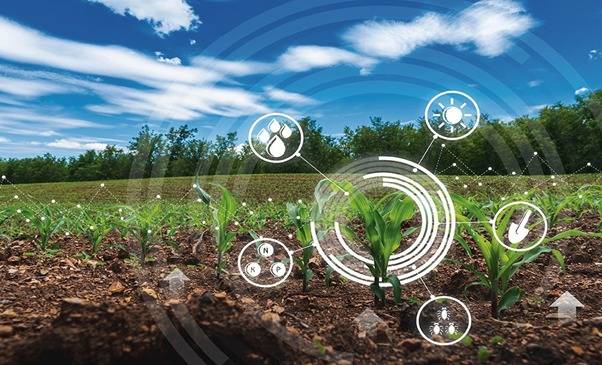Artificial intelligence offers solution to farmers to reduce agricultural input and increase productivity with less use of resources,” Muhammad Azeem Tariq, Senior Scientific Officer at the National Agricultural Research Centre (NARC) told WealthPK.
According to a report by the Agriculture Information Bank, AI can assist in confronting the humanity’s one of the greatest upcoming challenges of feeding an additional two billion people by 2050, as the UN projections record only 4% of extra land will be available for cultivation.
“Pakistan's agriculture sector has long been the backbone of its economy, providing livelihoods to millions of people and contributing significantly to the GDP. However, factors such as climate change, water scarcity, and outdated farming practices have challenged the sector's growth potential. In this scenario, AI can reshape the future of agriculture,” he said.
“Precision agriculture is at the forefront of this AI-driven revolution. The AI technologies are enabling farmers to make data-driven decisions and optimize various aspects of their operations.
“For example, drones equipped with AI-powered cameras are being used to monitor crop health. They capture high-resolution images of fields, which are then analysed to detect the signs of diseases, pests, or nutrient deficiencies. So, farmers can take corrective actions promptly, reducing yield loss and chemical usage.”
“The AI-driven sensors and weather data help farmers optimize irrigation. Smart irrigation systems use predictive analytics to determine when and how much water the crops need, saving water and energy while maintaining crop health,” he added.
“AI also plays a crucial role in connecting farmers to the markets. Through mobile apps and online platforms, farmers can access real-time market information, prices, and demand forecasts, ensuring they get fair prices for their produce,” he said.
While the potential of AI in agriculture is vast, there are challenges to overcome, including access to technology, affordability, and digital literacy among farmers, especially in the rural areas. The government, the private sector, and NGOs should work together to address these issues and ensure that the benefits of AI are widespread.
Caretaker Federal Minister for National Food Security and Research Dr. Kausar Malik said AI is playing a crucial role in reshaping the landscape of agriculture and revolutionizing the farming practices for a more efficient and sustainable future.
In a recent meeting with Dr. Mukhtar Ahmed, Chairman Higher Education Commission, Dr. Kausar Malik emphasized the need for adopting advanced farming techniques to improve production and storage, which will ultimately lead to food security in the country.
The minister sought cooperation from the Higher Education Commission to assist the ministry in the use of AI in the agriculture sector.






